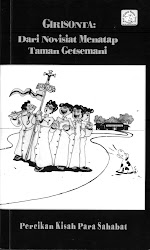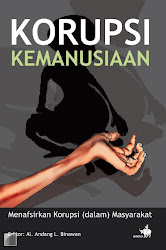Persecution is necessary in the church. Do you know why? Because the truth is always persecuted. Jesus said, “If they persecute me, they will also persecute you” (John 15:20). And because of this, when one day people asked Pope Leo XIII, that incredibly intelligent man of the beginning of our century, what is it that sets apart the true Catholic Church, the pope said the four qualities that are already known: one, holy, catholic and apostolic. The pope said to them, “Let’s add another: persecuted.” The church that lives up to its duty cannot exist without being persecuted.

Today we celebrate some Jesuit martyrs. John de Britto is one of them. As a martyr, de Britto was also persecuted in his life.
Father de Brito worked in India. The place is called as Madura, in the regions of Kolei and Tattuvanchery. When he studied the India caste system, he discovered that most Christians belonged to the lowest and most despised caste. He thought that members of the higher caste would also have to be converted for Christianity to have a future. He became an Indian ascetic, a pandaraswami since they were permitted to approach individuals of all castes. He changed his life style, eating just a bit of rice each day and sleeping on a mat, dressing in a red cloak and turban. He established a small retreat in the wilderness and was in time accepted as a pandaraswami. As he became well-known, the number of conversions greatly increased.
He was made superior in Madura after 11 years on the mission, but he also became the object of hostility from Brahmans, members of the highest caste, who resented his work and wanted to kill him. He and some catechists were captured by soldiers in 1686 and bound in heavy chains. When the soldiers threatened to kill the Jesuit, he simply offered his neck, but they did not act. After spending a month in prison, the Jesuit captive was released. When he got back to Madura, he was appointed to return to Portugal to report on the status of the mission in India. When he reached Lisbon ten months later, he was received like a hero. He toured the universities and colleges describing the adventurous life of an Indian missionary. His boyhood friend and now-king, Peter II noticed how thin, worn and tired his friend looked; he asked him to remain at home to tutor his two sons, but de Brito placed the needs in India above the comfort of the Portuguese court.
De Brito sailed again to Goa and returned to the mission in Madura when he arrived in November 1690. He came back despite a death threat that the raja of Marava had made four years earlier. The Jesuit missionary travelled at night from station to station so he could celebrate Mass and baptize converts.

His success in converting Prince Tadaya Theva indirectly led to his death. The prince was interested in Christianity even before the prayers of a catechist helped him recover from a serious interest. De Brito insisted that the prince could keep only one of his several wives after his baptism; he agreed to this condition, but one of the rejected wives complained to her uncle, the raja of Marava who sent soldiers to arrest the missionary on January 28, 1690. Twenty days later the raja exiled de Brito to Oriyur, a neighboring province his brother governed. The raja instructed his brother to execute the troublesome Jesuit who was taken from prison on February 4 and led to a knoll overlooking a river where an executioner decapitated him with a schimitar."
And now, what is the values of the life of the martyrs?
For us, the life of the martyrs explain how they bear their cross in their lives.
We know, Everybody has their cross? Is it heavy or not, but all are cross?
I often heard from many people about their life, their struggle, or their cross.
One day, A woman shared to me about her experience’s life.
She was a single parent. Her husband died when her oldest children stay in elementary school and her youngest children was two years old. She had 6 children. Since Her husband died, she began work.
Everyday she had to raise money for her family. She had to give the school fee for her children.
We can imagine how heavy her life. Even now, she still in difficult situation, although all her children have got marriage and have family.
All her life full of heavy cross. But, in that situation, that woman still happy.
But, another story, I have friend who don’t has a heavy burden.
He always has happy life. He had not to raise money. His parents is rich.
Does he has a cross?
I don’t know, may be he had small cross.
How about you?
Are You like that woman or my friend?
We have our own cross? Is it heavy or not, each one have their cross!
But, sometimes we try run away from our cross. Even, if allowed, we ask to God for small cross.
In my reflection, we can’t run away from our cross. We can’t ask for small cross.
Cross is God’s graces.
Cross is in our daily life. And Cross is not hidden outside ourself.
But remember, Cross is not happened because our mistakes.
As Christian we all have cross.

I have ilustration
Suppose someone gave you a dish of sand mixed with tiny iron filings.
You comb your fingers through the sand, but you don’t see any filings.
Then you take a small magnet and comb it through the sand.
Suddenly it is covered with filings.
Our cross is like a dish of sand. And God’s graces are like tiny iron filings.
So, when we combed with magnet and find the God’s graces, we can happy like woman in the beginning my sharing this morning.
On the other hand, Ungrateful people are like your fingers combing the sand.
They combed the “sands of life” with their fingers and found nothing for which to take up the cross.
Amen.







Tidak ada komentar:
Posting Komentar